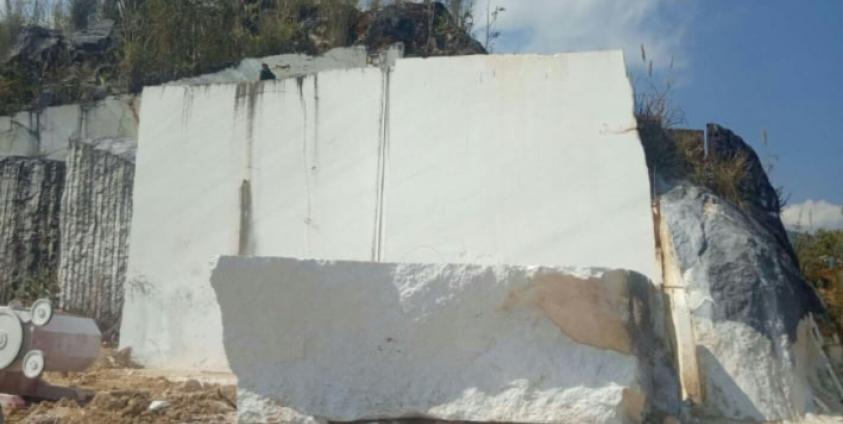Local CBOs say that at least five massive blocks of marble are being shipped across the border into China every day.
Five community-based organizations (CBOs) in northern Shan State’s Namkham Township are calling on the government to take action against three companies that are cutting huge blocks of marble from local hillsides and exporting them to China.
In a letter sent to President Win Myint and the Ministry of Natural Resources and Environmental Conservation on Monday, the five CBOs demanded that the government do something about the mining operation, which they say is opposed by local people.
“Three companies are digging out marble in Hing Lon village tract. People in the area say they don’t know if the companies have an excavation license, but they want it to stop,” said Sai Aung Win, the chairman of the Namkham Township Heritage and Historical Places Conservation Association, one of the five CBOs that sent the letter.
“The government should listen to the voices of local people because we are heading towards democracy in this country. [The companies] didn’t get permission from local people and the government isn’t getting any tax,” he added.
“There is no transparency. This is trafficking. I want the government to realize this.”
In addition to the Heritage and Historical Places Conservation Association, the letter was signed by the Namkham Town Elders, the Shan Nationalities Democratic Party, the Solidarity Team and the Namkham Township Farmers’ Association.
According to local people, the three companies—Myanmar Myar-Oo (Myanmar Arrow Head), Toe Pwar Aung, and Nin Nin Khaing—are cutting massive pieces of marble into blocks and sending them to neighboring China’s Yunnan Province by truck.
“I don’t know if the local authorities just don’t know about this trafficking or if they’re turning a blind eye to it, but they haven’t taken action against these companies,” said one resident of Hing Lon village tract who spoke to SHAN.
Local sources said that they see at least five 10-wheel trucks a day haul the blocks across the border into China, each one carrying a solid block of marble.
“None of the drivers speak Burmese or Shan. They can only speak Chinese. The trucks don’t pass through the [official] Mang Weing gate but cross the border on the Nawng Joang village road, which is often used for illegal trafficking,” said Sai Aung Win.
“This marble-mining operation impacts on both local people and the environment in the area. That’s why we’re opposed to it and why we will try to stop it,” he added.







